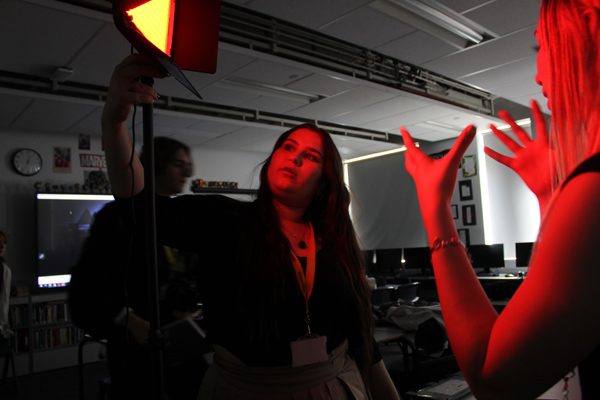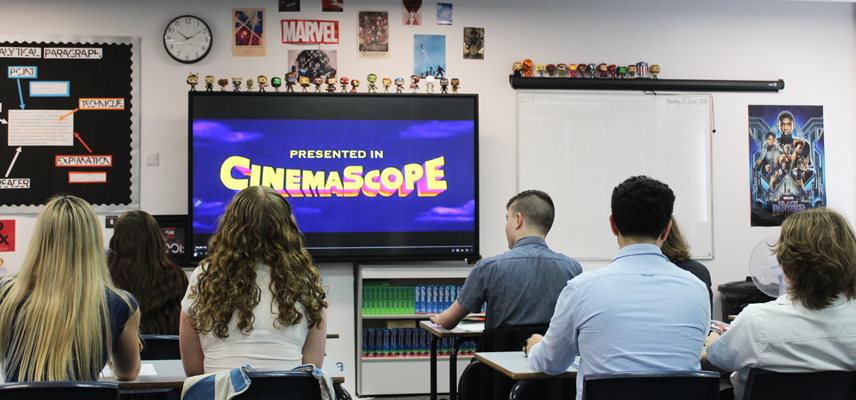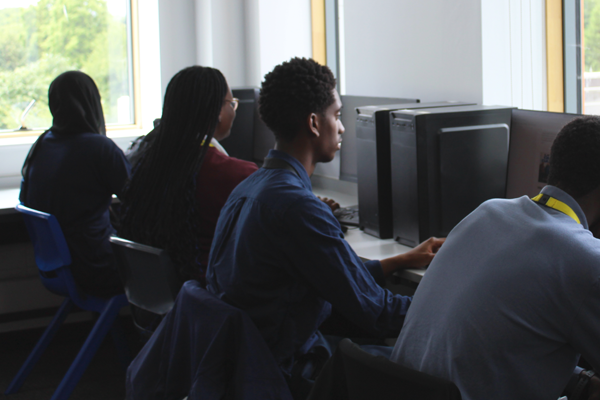 Welcome to the Film and Media Department at the Nobel School where we delve into the progression of the media sector and the evolution of film across different time periods and cultures. Students will have the opportunity to examine various topics, including the portrayal of gender, race, and sexuality, as well as the political and economic aspects of the global entertainment industry. Across the courses we offer, students will develop both creative and practical skills, while exploring different forms of media and their impact on society. This combination of theoretical knowledge and practical experience will equip students to become proficient analysts and practitioners in the field of film and media, preparing them for diverse careers in the creative industries.
Welcome to the Film and Media Department at the Nobel School where we delve into the progression of the media sector and the evolution of film across different time periods and cultures. Students will have the opportunity to examine various topics, including the portrayal of gender, race, and sexuality, as well as the political and economic aspects of the global entertainment industry. Across the courses we offer, students will develop both creative and practical skills, while exploring different forms of media and their impact on society. This combination of theoretical knowledge and practical experience will equip students to become proficient analysts and practitioners in the field of film and media, preparing them for diverse careers in the creative industries.
We are proud to offer four qualifications across Key Stages 4 and 5:
- GCSE Film Studies
- BTEC Creative Media Production
- A-level Film Studies
- CTEC Digital Media Extended Certificate.

What does studying Media involve?
Media Studies encompasses a vast array of media forms, ranging from advertising to television, magazines to gaming. Students are tasked with analysing and researching various areas, while considering the fundamental media concepts of genre, narrative, audience representation, and institutions. Additionally, they acquire media-specific terminology to effectively articulate their ideas. The curriculum is infused with theory to ensure that students comprehend the academic nature of the subject. Throughout the course, students engage in diverse practical tasks, including storyboarding, filming, photography, photo editing, and scriptwriting. They produce meaningful texts that target specific audiences, fostering their creative and empathetic skills. The course encourages both teamwork and independent learning, and students learn to express themselves orally and in various written formats. The skills acquired through media studies, such as research, teamwork, and ICT, are transferable to numerous careers and future learning pathways.

What does studying Film involve?
At GCSE and A-Level, our curriculum encompasses a diverse selection of films spanning various time periods and settings. Our aim is to deconstruct the ways in which meaning is constructed through the fundamental elements of film. Throughout their studies, students will enhance their ability to interpret the language of film, equipping themselves with the necessary analytical skills to comprehend and appreciate cinema from a critical standpoint. We explore a wide range of films, examining the evolution and transformations within Hollywood, as well as exploring different perspectives in global filmmaking. Our focus lies on the core techniques of filmmaking, teaching students how to analyse cinematography, editing, sound, and mise-en-scène in order to understand the overall impact achieved. Additionally, students will have the opportunity to develop their own practical and creative skills by creating screenplays, storyboards, and original short films.
At A-Level, these concepts are further expanded upon, allowing students to develop a more theoretical and conceptual understanding of film. They will study a diverse array of British and American films, delving into complex critical ideas such as auteur theory, ideology, and spectatorship. Furthermore, students will have the chance to refine their practical and creative abilities through the non-examined component.
The combination of theory, analysis, and filmmaking ensures that our GCSE and A-Level courses provide a solid foundation for future academic pursuits or apprenticeships in the field. Film Studies also offers an opportunity for cinema enthusiasts to deepen and broaden their knowledge, while simultaneously honing their critical and analytical writing skills.
Long Term Plans
Click the links below to view PDFs

